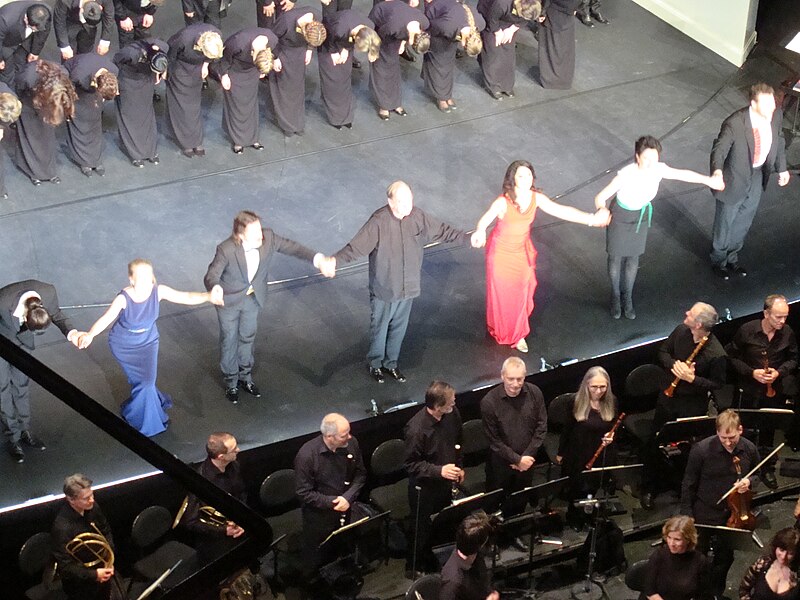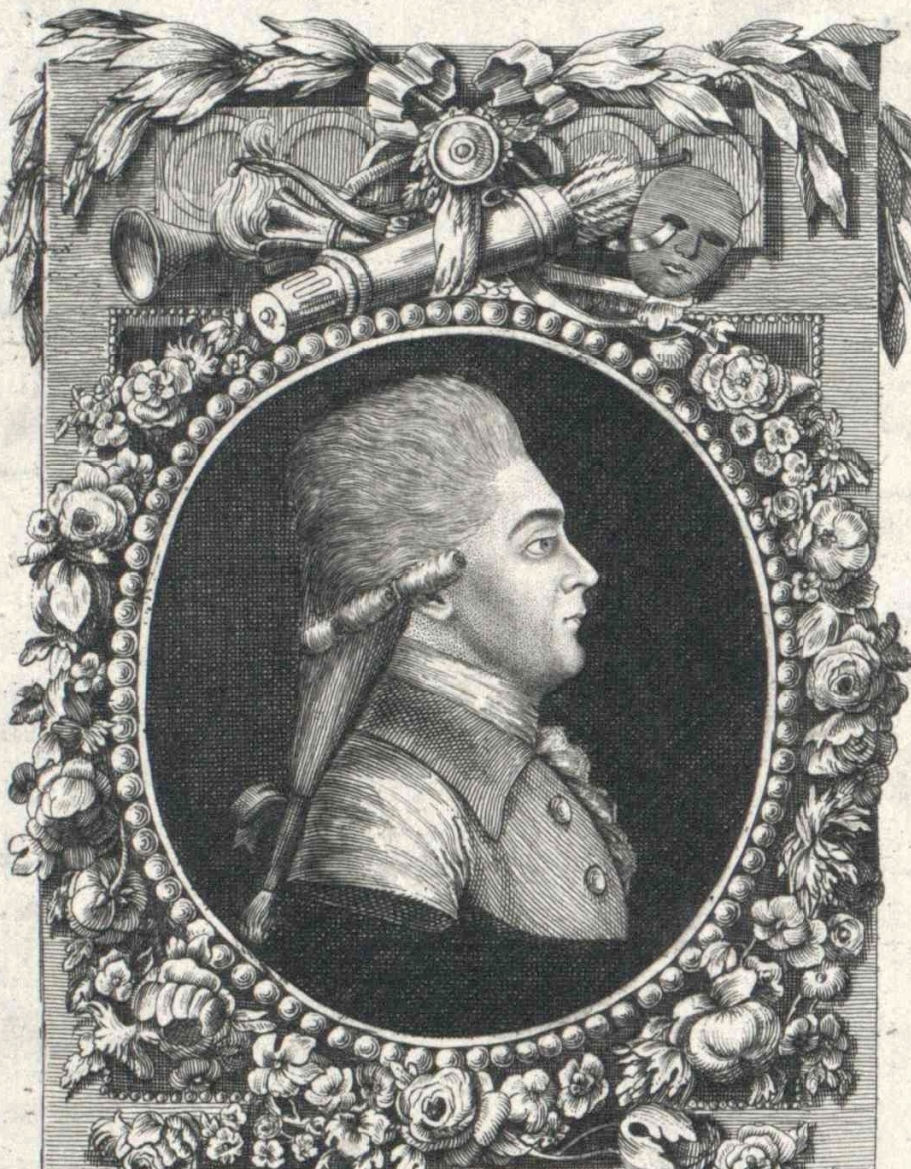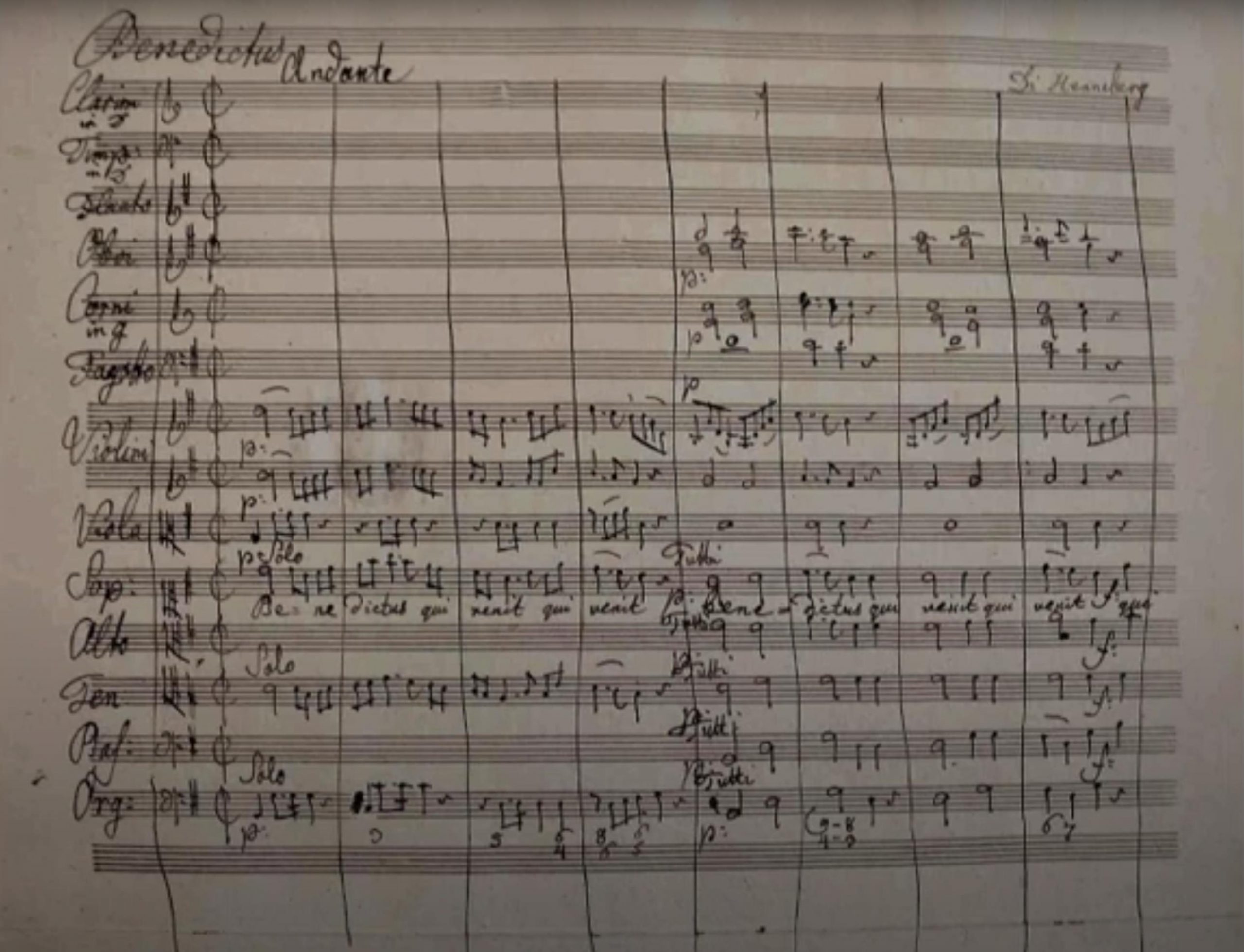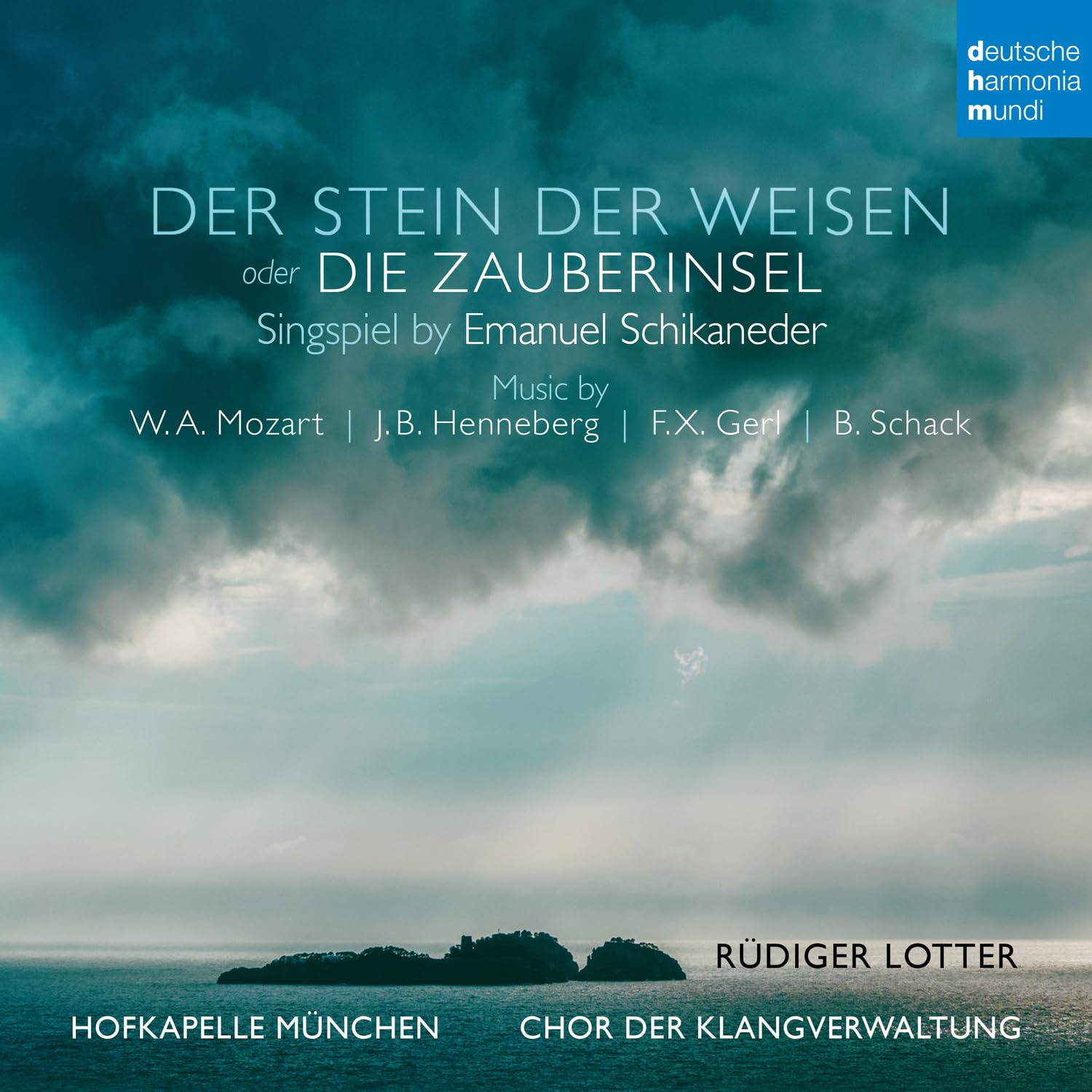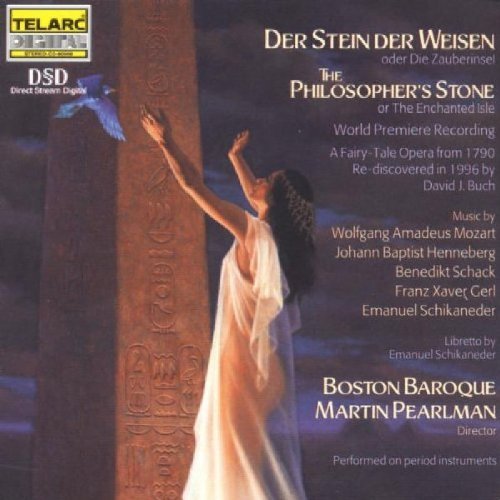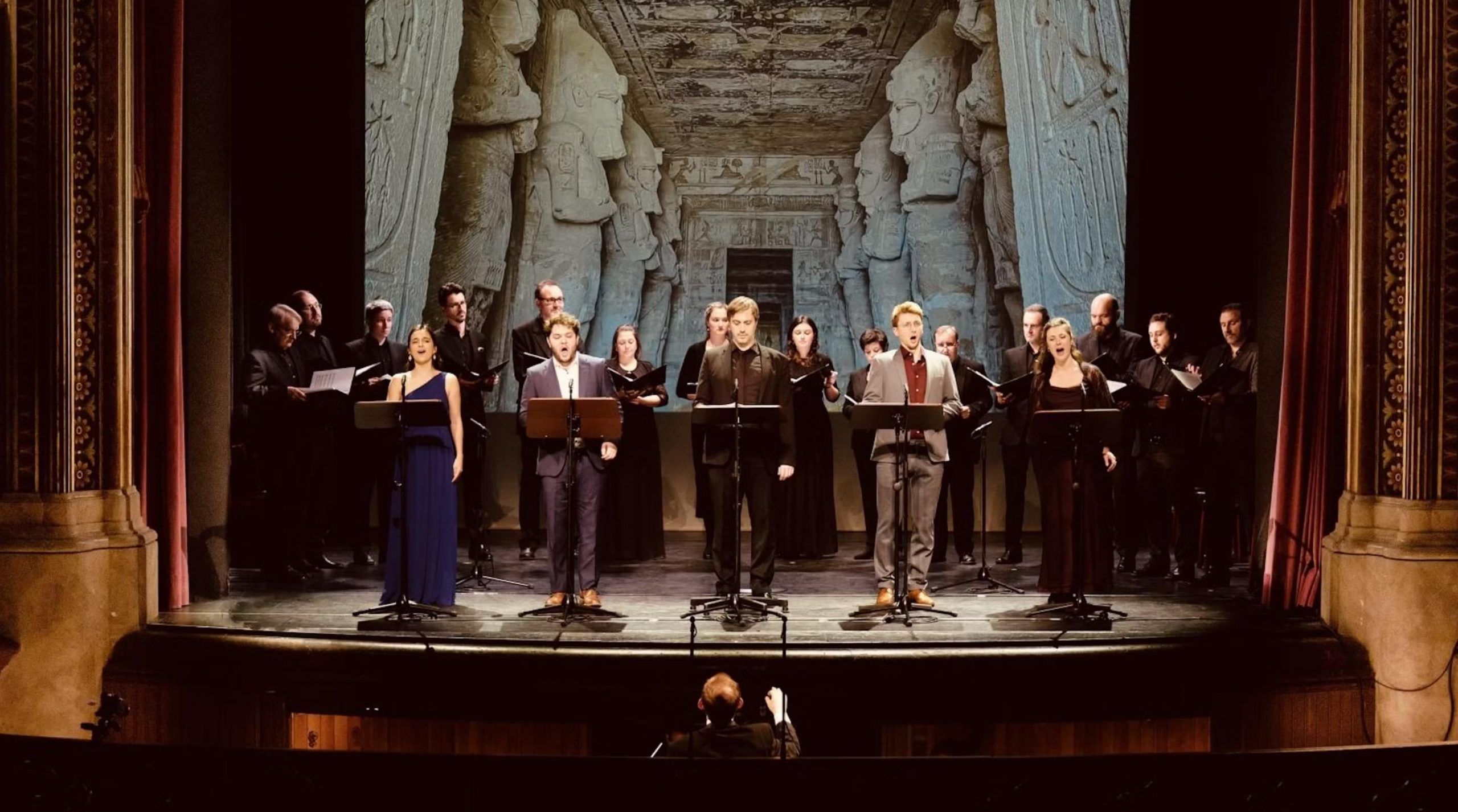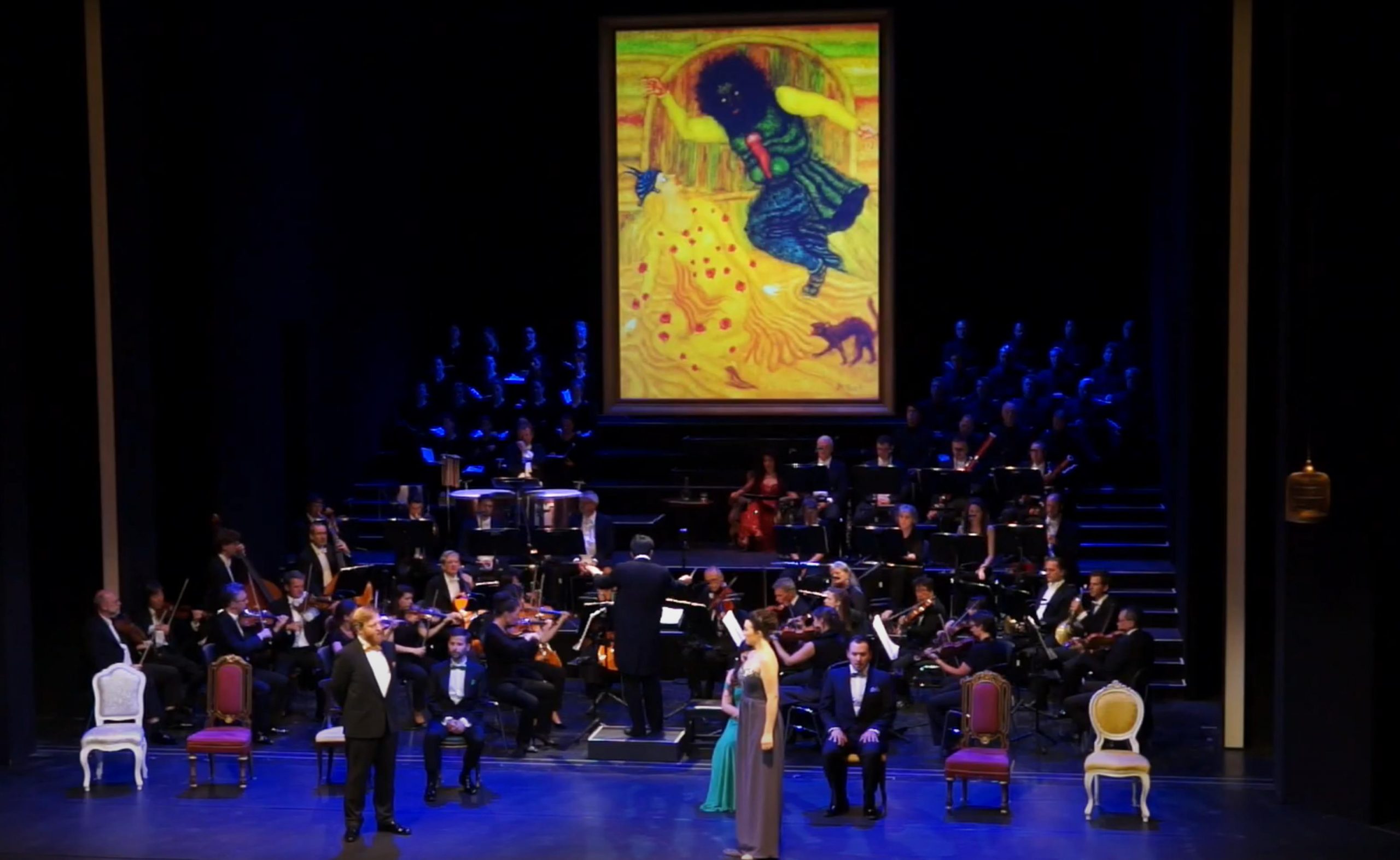
story | Hdl en
Category : elements | Handlung en
Wolfgang Amadeus MOZART
Johann Baptist HENNEBERG
Benedikt SCHACK
Franz Xaver GERL
Emanuel SCHIKANEDER
THE PHILOSOPHER’S STONE
Or: The Magic Island
_____________________________________________________
Comic opera in two acts
Libretto by Emmanuel Schikaneder
Premiere on 11 September 1790 in Vienna
The action takes place in an Arcadian landscape
Time: Fairytale time
The people
Astromonte , demigod, ruler of Arcadia (Tenor)
Eutifronte , subterranean spirit, brother of Astromonte ( Bass )
Sadik, priest of Astromonte ( Bass /Baritone)
Nadir, Sadik’s foster son (Tenor) Nadine, Sadik’s daughter (Soprano)
Lubano , a forester ( Bass /Baritone)
Lubanara , his wife (Soprano)
A genius, ambassador of Astromonte (Soprano)
First Lady (Soprano) Second Lady (Soprano) Third Lady (Soprano) Fourth Lady (Soprano)
Shepherds, forest spirits, subterranean spirits, protective spirits, wailing women
1. ELEVATOR:
Scene 1
At the beginning of the opera, the demigod Astromonte is worshipped against the backdrop of an Arcadian landscape with a pyramid of shepherds and shepherdesses. Sadik, the priest, discovers that his foster son Nadir and his daughter Nadine are not among the gathering, how wicked. The two’s absence is rebuked, and they are accused of immorality [ Astromonte will punish them, for they are slaves to vice].
Scene 2
Singing from afar, Nadir and Nadine approach the temple with Lubano and Lubanara to offer their sacrifices. When they reach the temple to deliver their rich offerings, the people cry out: “Outrageous audacity! Our temple has been desecrated!” Offerings may only be presented by virgins, and this is contradicted by the fact that Lubano recently married his beloved Lubanara . Terror drives the assembly to flee.
Scene 3
A minor marital crisis for the newlywed couple Lubano and Lubanara : Lubano is jealous of his wife’s friends, while Lubanara complains about staying at home all day. Lubano caps off the situation with an aria about women’s frivolity (Good heavens! Oh, you gods! Lubanara is crazy!).
Scene 4
Sadik accuses Lubanara of her recklessness in bringing her husband to the temple and thus into mortal danger. Lubanara doesn’t take this seriously and responds in a cheeky aria, “Such a beautiful woman can boldly approach any man . ” Sadik, burning with anger, sends her away with contempt and a warning that she will not escape Astromonte’s punishment . Lubanara is stripped of his hunting license until his wife comes to her senses.
Scene 5
Nadir and Nadine are also not spared the priest’s anger. Sadik accuses them of not informing him about Lubano’s wedding. Sadik reveals to his daughter that she will be snatched from his arms, which means more than death.
Scene 6
Just as Sadik names Astromonte as his daughter’s alleged kidnapper, a cloud chariot appears from the sky, accompanied by magnificent music and a choir. Inside, a genie (genius) appears, holding an ornate birdcage complete with a bird. The genie announces that Astromonte sent him with a message: “Whoever this bird sings to as soon as she receives it from him will be the purest of all, deserving of the bird all by herself.” A somewhat complicated virginity test, then… An argument erupts among the girls:
FIRST GIRL
That’s me all alone
SECOND GIRL
It’s me, he’s mine.
THIRD GIRL
The bird is mine, mine.
FOURTH GIRL
…
Scene 7
Lubano’s Native American-style hut. He’s taking a nap while his wife fantasizes about selling herself to Astromonte as a virgin in exchange for a few rides in his cloud chariot.
Scene 8
Disturbed by the nonsense, Lubano wakes up and orders the fool to go into the hut immediately and not leave again. But Lubanara isn’t having any of that… she wants her freedom!
Scene 9
After a successful escape attempt, Lubano uses a trick to lure his female back into the home, locking the gates this time. Musically expressed in a charming duet: “Is it really going to stay this way? – – – Female, yes, it’s going to stay this way.”
Scene 10
Lubano has left the scene, leaving Lubanara alone in the hut. She jokingly wishes for Eutifronte , the spirit of the underworld, to help her to freedom.
Scene 11
Eutifronte doesn’t need to be told twice and is already on the scene, sparing no thunder and lightning when he appears. Lubanara can hardly believe it and trembles to death. As requested, he opens the hut’s lock with a ridiculous magic trick and reveals to Lubanara his plans for revenge against the stupid brother Astromonte .
Scenes 12 and 13
Lubano is lured by the “thunderstorm” and is amazed when he reaches his wigwam. Lubanara is more frightened by her husband than she was by Eutifronte . Before Lubano can scare off the intruder, he disappears with Lubanara. underarm in the underground.
Scene 14
Lubano stares, astonished, into the deep hole where his wife and the stranger disappeared under the smoke. Two dwarves crawl out of the hole and hold a mirror up to him: Now he’s wearing deer antlers and remarks, “Oh gods, what is this? I’m bewitched!”
Scene 15
Great: Now a troop of hunters roams the stage, bows drawn. Lubano takes off… While the hunters’ chorus roars joyfully over the stately stag with golden antlers, Lubano begs for Astromonte’s help.
Scene 16
Metamorphosis [as in Scene 1]. Nadir and Nadine discuss their fears of Nadine’s abduction by Astromonte in the event that she is recognized by the Bird of Virginity as the purest of the pure. The pain of separation: “A girl who burns with love…” Nadine assures her lover that she will flee with him no matter what.
Scene 17
When Nadir is alone again, he reiterates his intention to escape with Nadine. But the boss himself intervenes. Astromonte : “You’ll never do that, I swear!” A touching aria concludes the scene, in which Nadir begs Astromonte to give him Nadine.
Scenes 18 to 20 – Finale I
The competition with the bird begins. The bird makes its rounds and remains silent, which the virgins lament greatly. Finally, it’s Nadine’s turn, and, who would have thought it, the bird sings its song.
The harried Lubano scurries across the stage and hides behind the pyramid. At that moment, Astromonte descends from the higher realms in his cloud chariot to collect the smoke offerings he has been waiting for for a full hour. Astromonte thanks and says his goodbyes, and the chariot rises, when suddenly the birds speak again. The start is abruptly postponed. The elderly gentleman vaguely remembers the maiden contest and is delighted when he is presented with the chosen one. Nadine, less enthusiastic, simply faints, which makes the play easier. The cloud chariot (incidentally, decorated with gold on the inside) rises with Nadine, accompanied by Astromonte , and disappears. Also not delighted, Nadir and Sadik lament the loss of feminine beauty. Everyone joins in the great search for Nadine:
FINAL CHORUS
So come, without delay , and let us hasten to our ships. Come, let us
sail further than
our ships have ever sailed .
We must free Nadine ,
and even if she were already at Acheron, come, embark.
________________________________________________________
2ND ELEVATOR:
Scene 1
Rocky terrain and a view of the sea. Storm, thunder, howling winds on the horizon. The shepherds and shepherdesses are scattered across two ships. The chorus sings, “Ah, Astromonte , help us…”, but all their pleading is in vain. The chorus has barely ended when lightning strikes both masts, the ships sink, and the people drown.
Scene 2
Eutifronte triumphs and shows off his superiority: ” Astromonte , look down, her, my power is greater than yours.” The genius [ Djinn ] appears with a lifeboat and explains: “You can only torment people, but never destroy them.” The genius recommends reconciliation with his brother and disappears. Eutifronte falls off a cliff.
Scene 3
Nadir and Lubano appear without seeing each other. Nadir faints from exhaustion, and Lubano complains once again about women: “Don’t trust girls too much, for they are all faithless!” [Aria].
Scene 4
Nadir speaks of Nadinen in his dream and curses Astromonte . This immediately brings Eutifronte back to the scene, for whom these words sound like music. Nadir jumps up and stares at Eutifronte . Eutifronte uses the opportunity to win Nadir over to his side. He tells Nadir that he and Astromonte are sons of a wise man who was the most powerful of all magicians. Astromonte was the chosen one to inherit the philosopher’s stone – the most powerful magical tool – which is why he cursed him. The father was offended by this argument and denied both sons their inheritance. An eagle carried away the philosopher’s stone until the day one of the two sons had offspring. The firstborn would inherit it. Nadir also learns that both sons [ Eutifronte and Astromonte ] were once in love with the same princess. But here, too, Eutifronte lost out: She married Astromonte’s brother . When the princess gave birth, Eutifronte sent his followers to suffocate the child. The princess died of grief. To comfort Astromonte , the wise father gave him a magic bird. The deal: Nadir would kill Astromonte and receive his Nadine back as payment. Both left the field, Nadir to recover, Eutifronte to forge the murderous steel.
Scene 5
Lubano appears and laments his loneliness and hunger.
Scene 6
The genie reappears in his canoe and presents the hungry man with a fruit. Greedily, Lubano opens the fruit to find a book inside: endless wisdom, a bitter disappointment.
Scene 7
Eight dwarves approach, accompanied by music. They beckon him to come with them to a place where plentiful food and drink await him. Lubano realizes he’s in Lillput and wants to follow the little ones .
Scene 8
Lubanara appears. Reconciliation, embrace.
Scene 9
Lubanara claims to have resisted the evil and tells Lubano about the evil pact between Nadir and Eutifronte . Lubano listens to the proceedings from the background. Red-faced with anger, he transforms Lubanara into a cat and disappears. In a duet called “Now, dear female…”, Lubanara only has to sing the “meow” part. Initially thrilled that his female will now be happy to stay home, he recognizes the somewhat stupid situation, “The devil take the meow ! ” and hopes that Eutifronte will forgive him.
Scene 10
A vault. Nadir appears with Eutifronte . Still enraged that Lubanara has revealed the secret of the murder plot, he leaves with the instruction to follow the ghosts that appear at the seventh blow of the hammer.
Scene 11
Nadir is alone and prays in an aria, “O gracious gods, hear my prayer!” As he is about to leave, Lubano and Lubanara arrive .
Scenes 12 and 13
Delighted, Nadir embraces Lubano . After a brief conversation, seven hammer blows resound, the ghosts appear, and Nadir must leave.
Scene 14
The Magic Forge. Eutifronte summons the spirits to forge the magic sword: “Open, O gate of dark hell.” Astromonte’s death is already being loudly sung by the ghost choir. Eutifronte hands the sword to Nadir, and everyone leaves the scene.
Scene 15
A forest grove. The dwarves pursue Lubanara , but the Genius comes to the rescue and throws the dwarves into the abyss.
Scenes 16 and 17
Eutifronte gives Nadir a magic arrow that kills everything it touches, even the magic bird Astromontes would be killed… Eutifronte leaves the place, urging steadfastness and bravery.
Scene 18
Eutifronte brings Nadir and Lubano over. The magic bird whistles, signaling Nadine’s proximity, which visibly pleases Nadir. He leaves the scene to find Nadine.
Scene 19
Lubano is alone, indignant that he has been abandoned once again. He, too, wants to find his beloved again, which he sings about in an aria: “Love is indeed a foolish thing” [Note: Beethoven Variations!]
Scenes 20 and 21
A large garden, with Astromonte ‘s palace in the background . Nadir enters the palace. Nadine doesn’t notice and sings an aria to her beloved: “My only, dearest Nadir!”
Scene 22
Lubano also arrives at Astromonte ‘s palace and vents his anger at Eutifronte . Eutifronte’s appearance alone causes Lubano to fall silent in shock.
Final II
The finale begins with the meow of the Lubanara . Still visibly agitated, Lubano is dragged into the abyss by Eutifronte . Nadir loses control of his magic arrow: intending to strike the magic bird, he mortally wounds Nadine, which is greatly lamented. Nadir is horrified and curses Eutifronte . The genie intervenes and brings Nadir to safety.
In a forest grove, Lubano is locked in a birdcage by Eutifronte . A dirty trick is supposed to be taking place here, and Nadir is to be deceived. But just in time, before Nadir can kill the supposed bird, Astromonte appears , disguised as an old man, with the real bird. He explains to Nadir that all the drowned people and his lover will come back to life as soon as he gives up his sword. As a bonus, he reveals to him that Nadir is Astromonte’s son , who was unknowingly saved when Eutifronte’s followers were ordered to kill him. Nadir hands Astromonte the magic sword, and Eutifronte and the demons think they are in the wrong movie. The eagle gives Nadir the philosopher’s stone, Nadine appears, and Astromonte removes his disguise. Astromonte offers his brother reconciliation, but the latter retreats to his underworld in a huff. The cage around Lubano disappears, Lubanara transforms back.
The scene transforms into a magnificent temple where Astromente is acclaimed. Nadir and Nadine are married.
ALL
Now let us all with a happy heart ,
since we see each other so happily now, Nadir and Nadinen to the matrimonial bond,
the kind protection of Astromonte Come, let us dedicate a sacrificial
festival to the gods and
renew this joyful sacrifice every year.
